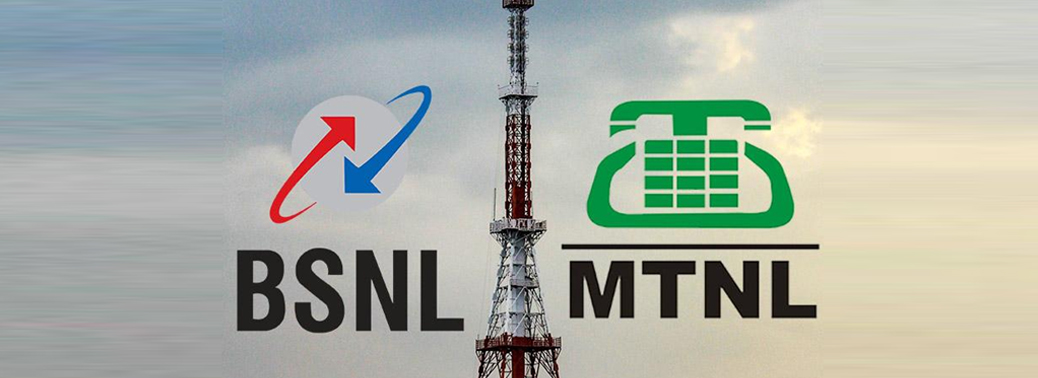MERGER OF BSNL AND MTNL
30, Oct 2019

Prelims level : Economy
Mains level : GS-III Government Budgeting
Why in News?
- In an effort to revive the beleaguered state-owned telecom firms BSNL and MTNL, the Union Cabinet on Wednesday approved a package worth nearly ₹70,000 crore. The Cabinet, chaired by Prime Minister Narendra Modi, also gave an in-principle nod for the merger of the two entities.
The Crisis:
- BSNL is in extreme financial trouble. The company has been in this situation for a while and the condition has worsened to an extent that it is not able to pay salaries to its employees.
- BSNL has been in trouble since the last 10 years due to poor government policies and delays in bringing new infrastructure. The inferior infrastructure, as well as the company structure, have further resulted in this situation. Even the Department of Telecommunications has asked BSNL not to go to banks for getting more loans.
- Main reasons are stiff competition in mobile segment, high employee cost and absence of 4G services (except in few places for BSNL) in the data-centric telecom market which is eroding the competitive strength. Human resource comprises 5% of cost for other telecom operators, for BSNL and MTNL the number is over 70%.
Recent Cabinet Decisions:
- Administrative allotment of spectrum for 4G services to BSNL and MTNL so as to enable these PSUs to provide broadband and other data services.
- The said Spectrum will be funded by the Government of India by capital infusion in these PSUs at a value of Rs 20,140 Cr in addition; the GST amount of Rs 3,674 Cr to this spectrum value will also be borne by the Government of India through Budgetary resources.
- By using this spectrum allotment, BSNL and MTNL will be able to deliver 4G services, compete in the market and provide high speed data using their vast network including in rural areas.
- BSNL and MTNL will also raise long-term bonds of Rs 15,000 Cr for which sovereign guarantee will be provided by the Government of India (GoI). With the said resources, BSNL and MTNL will restructure their existing debt and also partly meet CAPEX, OPEX and other requirements.
- BSNL and MTNL will also offer Voluntary Retirement to their employees, aged 50 years and above through attractive Voluntary Retirement Scheme (VRS), the cost of which will be borne by the Government of India through budgetary support. The ex-gratia component of VRS will require Rs. 17,169 Cr in addition, GoI will be meeting the cost towards Pension, Gratuity and Commutation. Details of the scheme will be finalised by BSNL/MTNL.
- BSNL and MTNL will monetise their assets so as to raise resources for retiring debt, servicing of bonds, network upgradation, expansion and meeting the operational fund requirements.
- In-principle merger of BSNL and MTNL
Benefits:
- It is expected that with the implementation of said revival plan, BSNL and MTNL will be able to provide reliable and quality services through its robust telecommunication network throughout the country including rural and remote areas.






